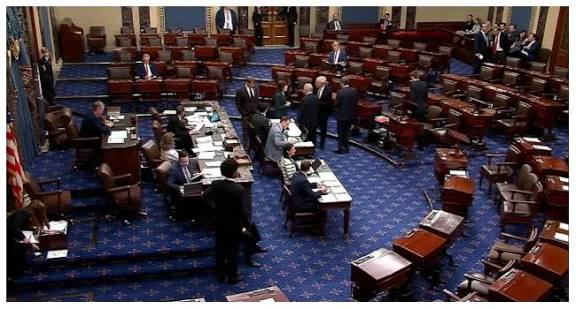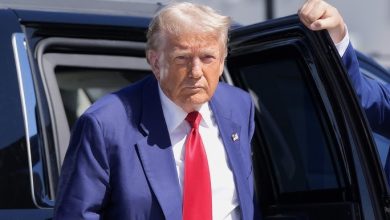U.S. senate votes to end government shutdown

The longest U.S. government shutdown in history is moving toward resolution after a 60-40 Senate vote approved a compromise funding bill, with several Democratic senators breaking ranks to join Republicans.
The legislation now moves to the House of Representatives, also under Republican control, for approval.
Since the shutdown began on October 1, 2025, over one million federal workers have gone unpaid, and government services including air travel have faced increasing disruption, with 1,000+ daily flight cancellations.
President Trump described the deal as “very good,” promising the government will reopen quickly.
Senate Republican Leader John Thune called it a “clear path” to ending the shutdown and ensuring federal workers are paid.
Senator John Fetterman, a Democrat who supported the bill, emphasised putting “country over party,” citing payments for military, government workers, and the Capitol Police.
The stopgap funding bill will reopen the government through January, with some programs funded for the full fiscal year.
It restores funding for SNAP, benefiting over 42 million low-income Americans.
Some previously fired federal workers under the Trump administration would have their positions reinstated.
Extension of Obamacare health insurance subsidies is not guaranteed under this deal, a central point of contention for Democrats.
Eight Senate Democrats, including Jeanne Shaheen, supported the measure, seeing it as a step toward protecting health care access.
Senate Minority Leader Chuck Schumer voted against it, criticising the bill for failing to fully address the health care crisis.
Some party members, like California Governor Gavin Newsom, expressed frustration over the compromise, calling it “pathetic.”
Criticism also targeted Schumer for not keeping Democrats unified.
The House of Representatives is expected to reconvene this week to vote on the bill.
If passed, federal workers will be paid, and government operations will resume, ending a 40-day period of uncertainty.
“It appears our long national nightmare is finally coming to an end,” said House Speaker Mike Johnson, noting Democrats now have the power to influence future health care legislation despite being in the minority.
The legislation represents a temporary resolution, with further debates on healthcare subsidies expected after the government reopens.



